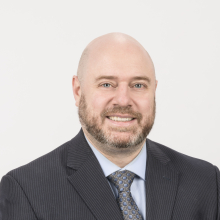Dr. Joshua Vorstenbosch
- Assistant Professor, Department of Surgery
- Associate Member, Department of Oncology
- Residency Program Director, Division of Plastic Surgery

MD, PhD, FRCSC
Currently supervising students
- Breast Reconstruction
- Lymphedema Surgery
- Complex Oncologic Reconstruction
- Foreign Body Reaction
- Tissue-Implant Interactions
Breast reconstruction outcomes, lymphedema surgical outcomes, and quality improvement in plastic surgery
- Breast Reconstruction
- Microsurgery
- Complex Oncologic Reconstruction
- Lymphedema
- Breast Implant Capsular Pathology
- Breast Implant Associated Anaplastic Large Cell Lymphoma
- Tissue-Implant Interactions
- Breast Reconstruction Outcomes
- Lymphedema Surgery Outcomes
- Quality Improvement
Joshua Vorstenbosch, MD PhD FRCSC is a board-certified plastic surgeon with a clinical practice at the Royal Victoria Hospital. Dr. Vorstenbosch graduated as valedictorian of his medical school class at McGill University in 2014. Concurrently, he earned his PhD in Experimental Surgery in 2013 studying cellular and molecular causes of fibrosis and inflammation during wound healing. He continued his training with a plastic surgery residency at the University of Manitoba, the centre with the highest volume of microsurgery cases in Canada. Dr. Vorstenbosch then advanced his microsurgical, breast reconstruction, and lymphedema surgery expertise with fellowship training in microvascular oncologic reconstruction at Memorial Sloan-Kettering Cancer Center before returning to McGill University as an attending plastic surgeon.
In addition to clinical activity, Dr. Vorstenbosch operates a laboratory at the Montreal General Hospital investigating tissue interactions at the implant interface. Notably, he studies how different factors contribute to normal and pathological capsular development around breast implants, with a specific interest in the pathogenesis of capsular contracture and breast implant associated anaplastic large cell lymphoma. Dr. Vorstenbosch’s clinical research interests focus on breast reconstruction outcomes, lymphedema surgical outcomes, and quality improvement in plastic surgery.
